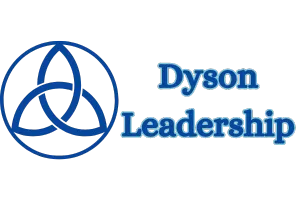
The Hidden Habits of Highly Effective Leaders
The Hidden Habits of Highly Effective Leaders
When we think of great leaders, we often focus on their accomplishments, vision for their respective organization, motivating speeches, making difficult decisions, or things like that. But what often goes unnoticed are the small, consistent habits that fuel their impact. These daily disciplines don’t make headlines, but they create the foundation for influence, integrity, and sustained leadership.
Highly effective leaders don’t become great overnight. They build greatness behind the scenes through intentional choices and habits that most people never see. If you want to elevate your leadership, it’s not just about learning new skills it’s about adopting the daily rhythms that shape character and effectiveness.
Here are 7 hidden habits of highly effective leaders that you can start practicing today:
1. They Start Their Day with Intention
Great leaders begin each day on purpose—not by accident. Whether it’s prayer, journaling, reading Scripture, or reviewing their goals, they create space in the morning to align their priorities with their values.
This Bible verse comes to mind:
“In the morning, Lord, You hear my voice; in the morning I lay my requests before You and wait expectantly.” – Psalm 5:3 (NIV)
Morning routines often include:
Quiet time with God or personal reflection
A review of the top tasks for the day
A short motivational read, personal development reading or leadership podcast
This kind of intentional start helps leaders stay centered, focused, and emotionally grounded.
2. They Practice Focused Listening
Listening is one of the most underrated leadership habits/skills. Highly effective leaders aren’t just good at talking they’re excellent at listening. They give people their full attention, ask thoughtful questions, and listen not just for information, but for emotion and meaning.
Focused listening builds trust and empowers others to speak up. It’s not flashy, but it’s powerful.
Try this next time you’re in a meeting, put away distractions and listen without interrupting. Ask a follow-up question to show you value the speaker’s perspective.
3. They Review and Reflect Daily
Highly effective leaders don’t just move from task to task, they reflect. At the end of each day, consider evaluating:
What went well?
What could have gone better?
What did I learn?
This simple practice of daily reflection builds self-awareness and encourages continuous growth. It prevents burnout, sharpens decision-making, and fosters humility.
4. They Keep Their Word (Even in Small Things)
Integrity isn’t built in grand gestures. It’s built in small decisions. Effective leaders understand that trust is formed in the details. If they say they’ll follow up, they do. If they promise feedback, they give it. They’re consistent and reliable, even when no one’s watching.
This habit of dependability cultivates credibility and earns long-term respect.
5. They Schedule Thinking Time
In the busyness of leadership, thinking time can feel like a luxury. But for effective leaders, it’s non-negotiable. They schedule time each week, sometimes even daily, to think, brainstorm solutions, or work through challenges.
Leadership expert John Maxwell calls this “thinking time” a secret weapon of great leaders. It allows them to rise above the noise and focus on what really matters.
Even 30 minutes of undistracted thinking can yield powerful insights.
6. They Practice Gratitude Consistently
Gratitude changes the atmosphere. Effective leaders take time to recognize team members, thank colleagues, and express appreciation. But beyond that, they cultivate a personal habit of gratitude, which improves their own emotional health and mindset.
A grateful leader is a grounded leader. Studies have shown that practicing gratitude improves decision-making, reduces stress, and enhances relationships—both personally and professionally.
7. They Invest in Others Intentionally
Finally, highly effective leaders don’t just build their own platform. They build up others. They mentor, encourage, challenge, and develop those around them. And they don’t wait for a formal opportunity they do it in small, daily interactions.
Whether it’s a quick affirmation, a leadership book recommendation, or a lunch meeting with a young team member, great leaders look for ways to multiply their influence by pouring into others.
The Bottom Line
You don’t need a big title or platform to develop these habits. You just need consistency, humility, and a desire to grow. These “hidden habits” may not be flashy, but they shape the kind of leader people want to follow and the kind of person you’re called to be.
Want to build better habits and become the leader you were made to be? Check out our Nehemiah Initiative for Christian Leaders or the Dyson Leadership Academy. Two programs we are looking to develop people on an ongoing basis for a low monthly cost.

